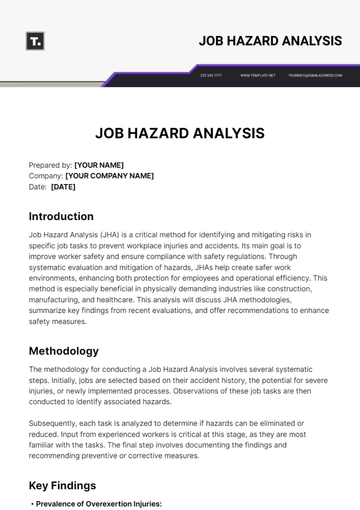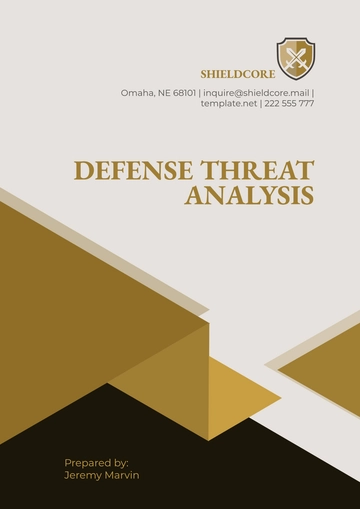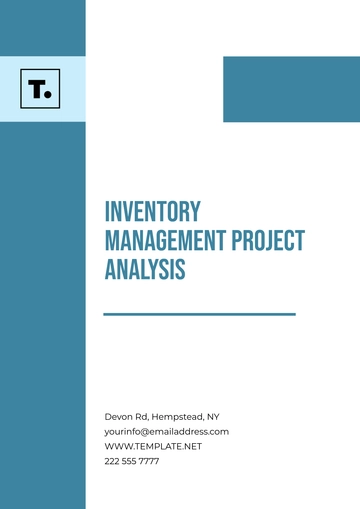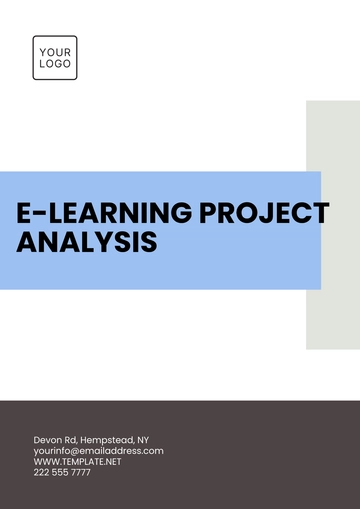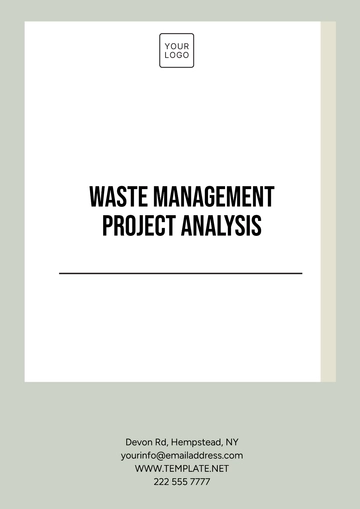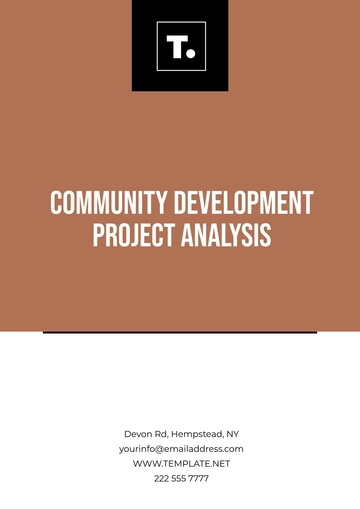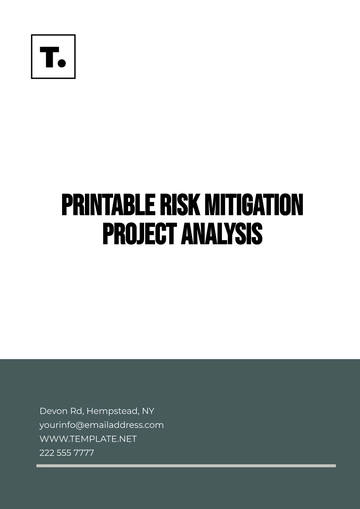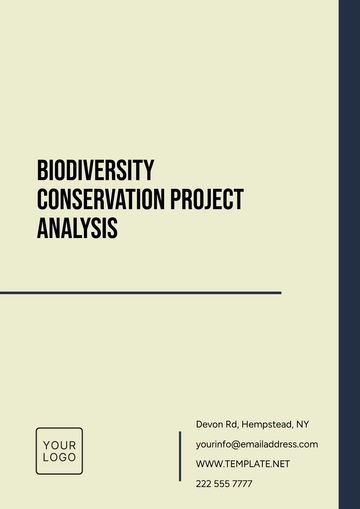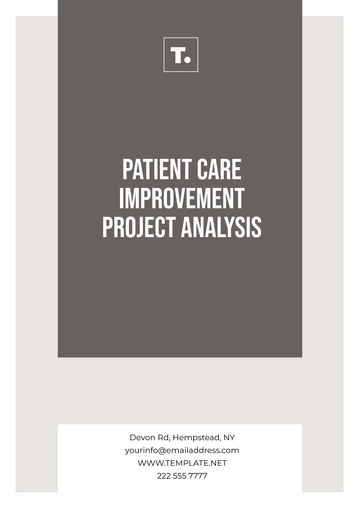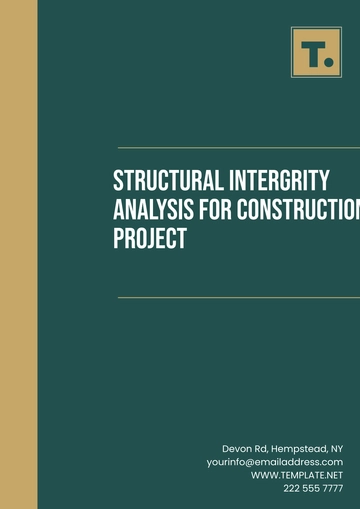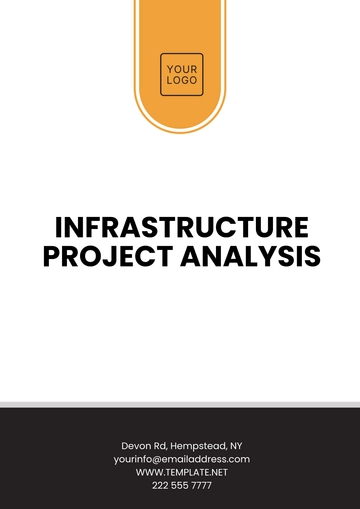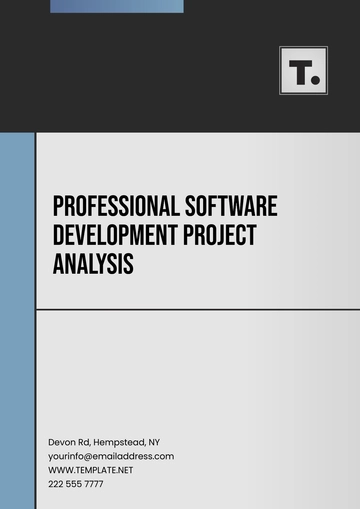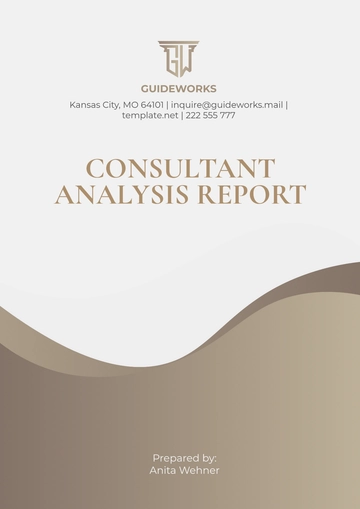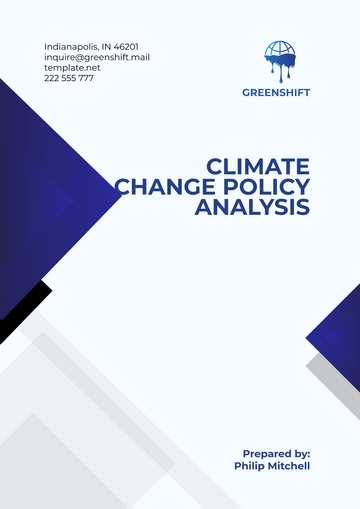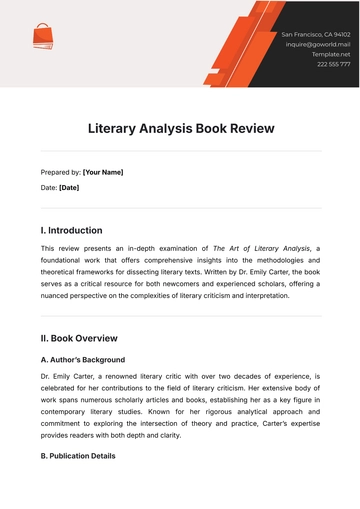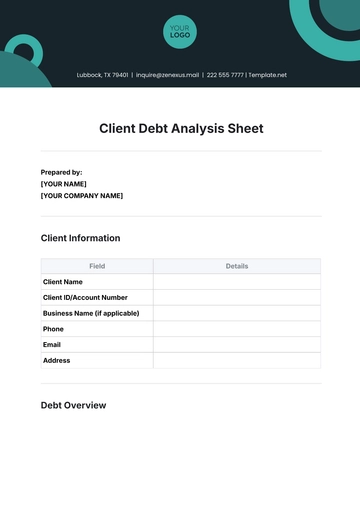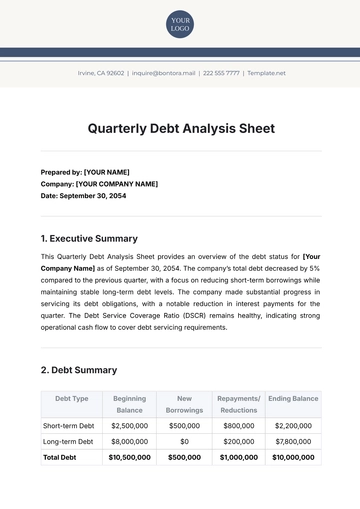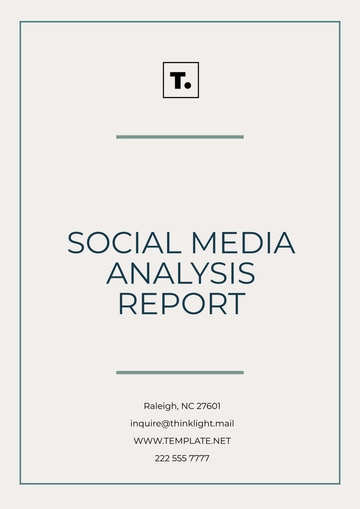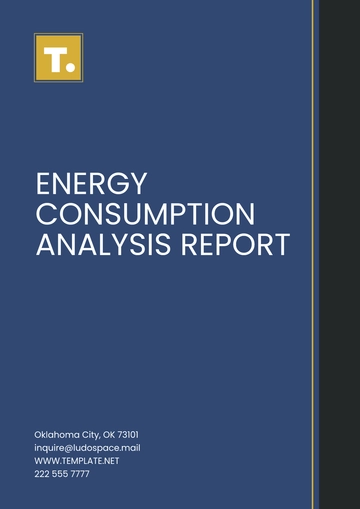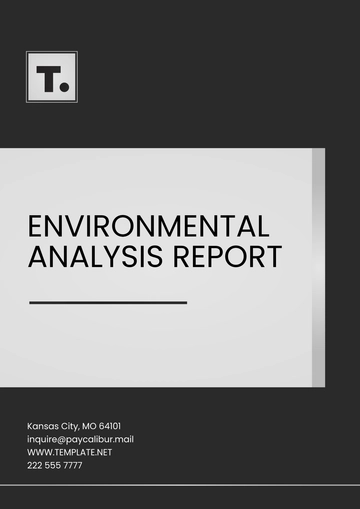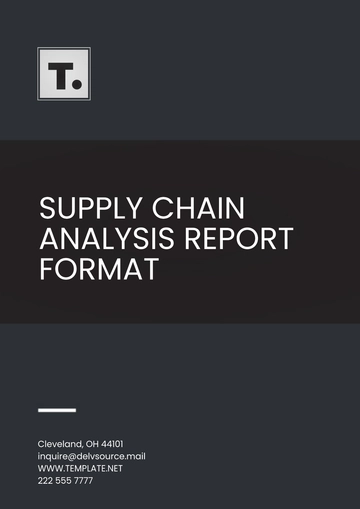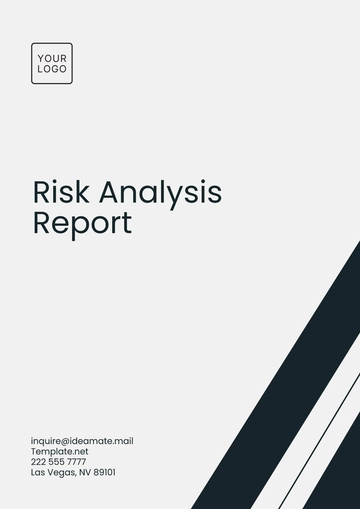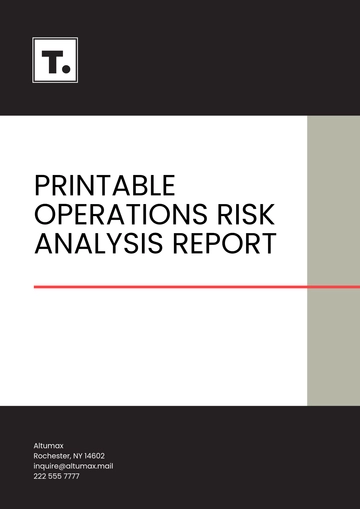Free Waste Management Project Analysis
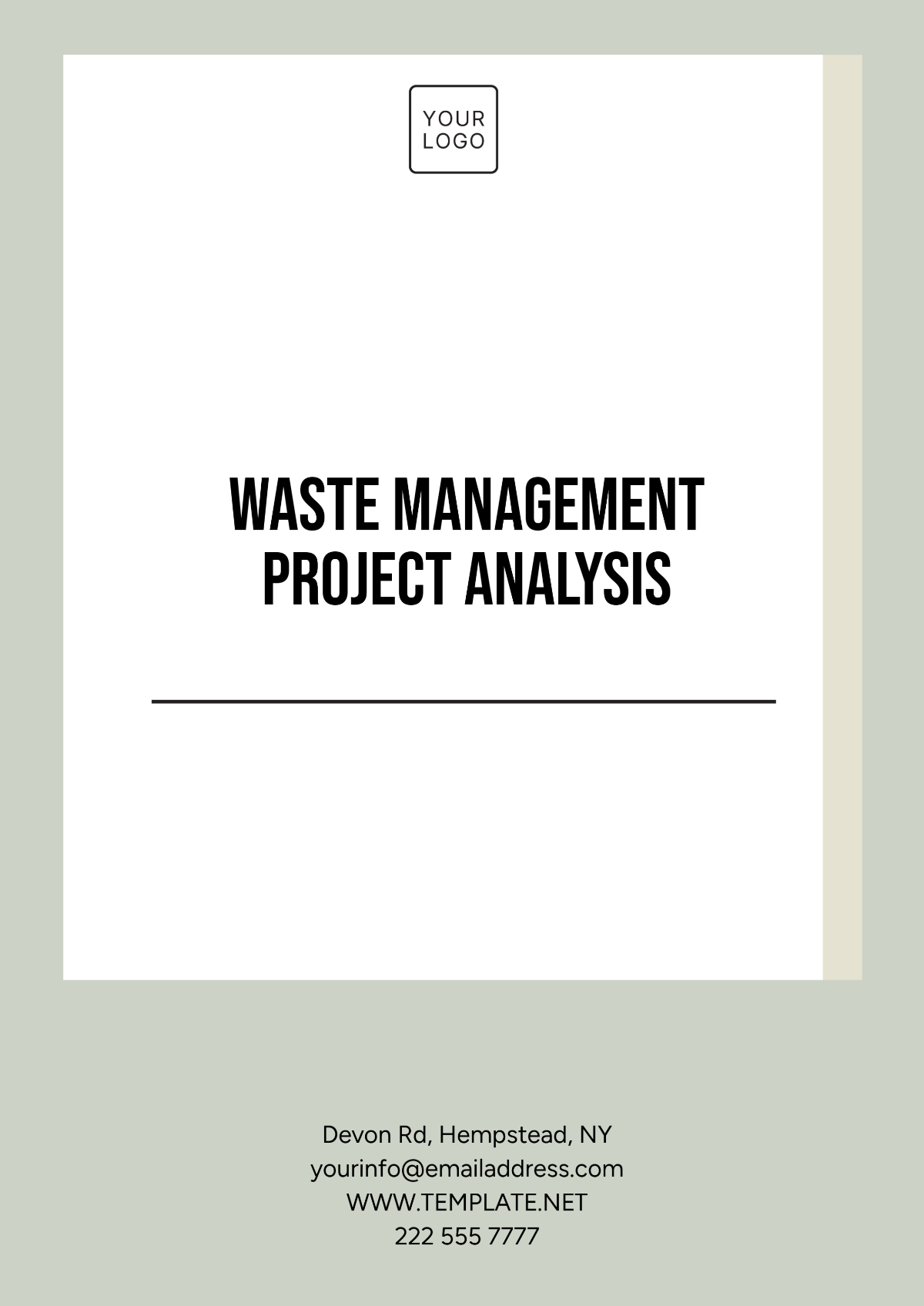
Prepared By: [Your Name]
Date: [Date]
Introduction
The Waste Management Project is designed to address the escalating challenges of waste generation and disposal. Rapid urbanization and increasing consumption patterns have underscored the critical need for sustainable waste management solutions. This analysis outlines the project's objectives, strategies, implementation plan, challenges, and expected outcomes to ensure a comprehensive approach to waste management.
Objectives of the Waste Management Project
The Waste Management Project focuses on achieving the following key objectives:
Waste Minimization: Reduce overall waste generation through innovative and sustainable practices.
Enhanced Recycling Efforts: Promote and streamline recycling processes to maximize resource recovery.
Safe Waste Disposal: Ensure environmentally compliant and secure waste disposal methods.
Public Education: Raise awareness about sustainable waste practices and foster community participation.
Community Involvement: Engage stakeholders to build a collaborative framework for effective waste management.
Stakeholders Involved
The success of the Waste Management Project hinges on the collaboration of diverse stakeholders, including:
Government Agencies: Policy formulation, regulation enforcement, and funding support.
Local Municipalities: Operational management and public service delivery.
Private Waste Management Companies: Infrastructure development and technological expertise.
Non-Profit Organizations: Advocacy and community mobilization.
Community Groups: Active participation in local initiatives and awareness campaigns.
Strategies for Waste Management
1. Waste Minimization
Promote the 3Rs Approach: Reduction, Reuse, and Recycling for individuals and industries.
Provide incentives for businesses to adopt eco-friendly manufacturing and packaging processes.
2. Recycling Enhancement
Invest in advanced recycling facilities and technologies.
Conduct public awareness campaigns to improve recycling habits and sorting practices.
3. Safe Disposal
Develop and maintain sanitary landfills and modern waste treatment facilities.
Ensure compliance with environmental standards for waste disposal processes.
Implementation Plan
Phase | Activities | Timeline |
|---|---|---|
Phase 1 | Stakeholder engagement and project planning | Q1 - Q2 |
Phase 2 | Infrastructure development and resource allocation | Q3 - Q4 |
Phase 3 | Implementation and monitoring of strategies | Year 2 |
Challenges and Mitigation Measures
1. Financial Constraints
Challenge: Insufficient funding for comprehensive implementation.
Mitigation: Secure funding from public-private partnerships and explore grants from international organizations.
2. Public Participation
Challenge: Limited community involvement in waste management initiatives.
Mitigation: Organize awareness programs and collaborate with local organizations to increase engagement.
3. Technological Limitations
Challenge: Difficulty in adopting modern waste management technologies.
Mitigation: Partner with technology providers to access innovative waste management solutions.
Expected Outcomes
The project is expected to deliver the following outcomes:
Reduction in Landfill Waste: Minimize the volume of waste ending up in landfills.
Increased Recycling Rates: Achieve higher efficiency in recycling processes.
Enhanced Environmental Quality: Improve air, water, and soil conditions through better waste management.
Sustainable Urban Development: Contribute to the broader goals of creating sustainable and livable cities.
Community Well-Being: Foster a healthier and more environmentally conscious society.
Conclusion
The Waste Management Project represents a robust and integrated approach to tackling waste-related challenges. By implementing strategic initiatives, fostering stakeholder collaboration, and addressing potential hurdles, the project aims to create a sustainable future with effective waste management systems. Continuous monitoring and adaptation will ensure long-term success and alignment with environmental and societal goals.
- 100% Customizable, free editor
- Access 1 Million+ Templates, photo’s & graphics
- Download or share as a template
- Click and replace photos, graphics, text, backgrounds
- Resize, crop, AI write & more
- Access advanced editor
The Waste Management Project Analysis Template, offered by Template.net, is a highly customizable and downloadable tool designed to streamline waste management processes. This template provides a comprehensive structure for analyzing and organizing waste projects, helping you stay on track and optimize your efforts. It is fully editable in our AI Editor Tool, allowing you to tailor it to your specific needs.

